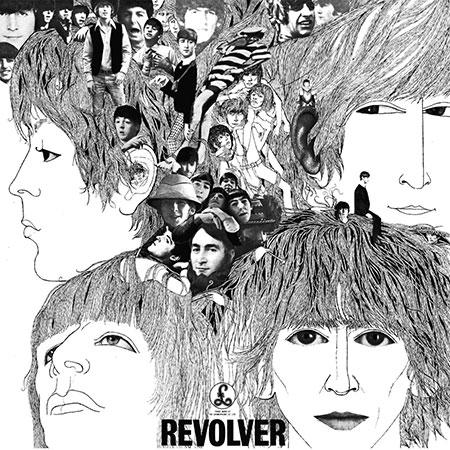Beatles, The - Revolver Remaster
Beatles, The - Revolver Remaster
Couldn't load pickup availability
Cut at Abbey Road Studios using non-limited 24-bit digital masters sourced from the original analog master tapes!
Pressed on 180-gram vinyl; Revolver's North American LP debut in stereo
Optimum audiophile-quality sound from a first-rate team of producers and engineers
Rolling Stone 500 Greatest Albums of All Time - Rated 11/500!
For years the most anticipated vinyl reissues have been from the one, the only Beatles catalog. Finally, after a delay due to the meticulousness of the remastering process and assorted other hurdles, that day has come. The Beatles catalog is getting the audiophile treatment! 180-gram vinyl pressings cut at Abbey Road Studios using the non-limited 24-bit digital masters sourced from the original analog master tapes!
When the dust settles amid critical debates, fewer than 10 albums compete for the title of the Best Album Ever Recorded. Revolver is one of the chosen few — and for good reason. Many tracks on Revolver are marked by an electric guitar rock sound in contrast with the previous folk rock inspired Rubber Soul. Revolver reached No. 1 on the U.K. and the U.S. charts. Features "Good Day Sunshine, " "Got To Get You Into My Life," "Yellow Submarine," and "Eleanor Rigby."
On Revolver, the Beatles sound cohesive, enthusiastic, and confident. There are no fractures in the chemistry, and the band amicably competes with itself in aiming for and achieving rock immortality. With George Emerick in the fold as the new engineer, the Beatles approached the studio as a chemistry lab. The biggest revelation? The potential of tape loops, as evidenced by "Tomorrow Never Knows," where phasing, reversing, slowing, and sampling turned the composition into a piece of masterpiece theater. Ringo's bass drum is also noticeably tighter, thanks to the addition of a sweater placed inside. All of the aspects are fully audible and amazingly preserved on this mind-blowing LP pressing.
Extensive testing was done before engineers copied the analog master tapes into digital files using 24-bit/192 kHz resolution and a Prism A-D converter. Dust build-ups were removed from tape machine heads after the completion of each title. Artifacts such as electrical clicks, microphone vocal pops, excessive sibilance and poor edits were improved upon as long as they were judged not to damage the integrity of the songs. The 24/192 transfers were done to produce an archival copy of the tapes and then those files were reduced to 24/44.1 kHz files for final mastering. De-noising technology was applied in only a few necessary spots and on a sum total of less than five of the entire 525 minutes of Beatles music.
The digital files were cut to lacquers at Abbey Road Studios. Engineer Sean Magee cut the LPs in chronological release order. He used the original 24-bit remasters rather than the 16-bit versions that were required for CD production. It was decided to use the remasters that had not undergone "limiting," a procedure to increase the sound level.
Steps to eliminate vocal distortions and inner-groove distortions were addressed using a digital workstation. The latter can affect high-middle frequencies, producing a "mushy" sound noticeable on vocals. Using what Magee has described as "surgical EQ," problem frequencies were identified and reduced in level to compensate for this.
Lastly, the first batches of test pressings made from the master lacquers that had been sent to two pressing plants were judged. Records with any noise or click appearing on more than one test pressing in the same place were rejected, on the grounds that undesired sound had been introduced either during the cutting or pressing stage. The remasters have the absolute best sound quality, producing the quietest vinyl lacquers.
For producer Rick Rubin, The Beatles' recorded achievements are akin to a miracle. The most popular bands in the world today typically produce an album every four years, Rubin told a 2009 radio audience. That's two albums as an eight-year cycle. "And think of the growth or change between those two albums. The idea that The Beatles made thirteen albums in seven years and went through that arc of change ... it can't be done. Truthfully, I think of it as proof of God, because it's beyond man's ability."
| Side 1 |
| Taxman |
| Eleanor Rigby |
| I'm Only Sleeping |
| Love You To |
| Here, There And Everywhere |
| Yellow Submarine |
| She Said She Said |
|
Side 2 |
| Good Day Sunshine |
| And Your Bird Can Sing |
| For No One |
| Doctor Robert |
| I Want To Tell You |
| Got To Get You Into My Life |
| Tomorrow Never Knows |
Share


